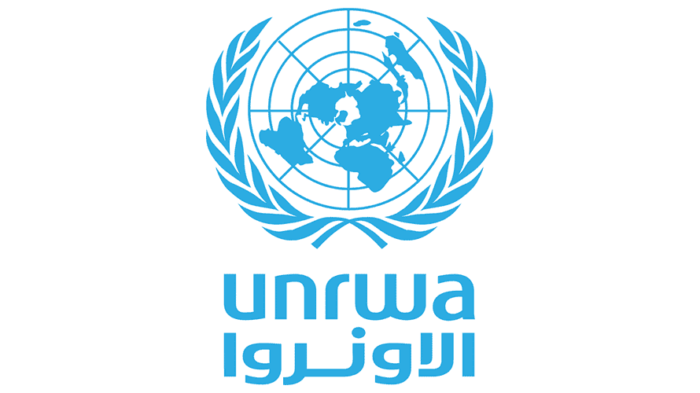Statement from World Refugee & Migration Council Chair the Hon. Lloyd Axworthy on behalf of the Council
We are deeply concerned by the decision of Canada and 16 other countries plus the European Union to temporarily pause funding to the United Nations Relief and Works Agency (UNRWA). We are also troubled by the broader lack of diplomatic engagement that Canada and other constructive middle powers have displayed in the region’s current crisis.
We commend the recent statement made by the Canadian government, along with Australia and New Zealand, calling on the Israeli government to halt its plan for a ground invasion in Rafah. That statement recognizes the dire circumstances facing civilians in Gaza and the need to ensure both civilian protection and immediate humanitarian relief.
The provisional order made recently by the International Court of Justice (ICJ) in the proceeding commenced by South Africa alleging genocide by Israel in Gaza emphasized that Israel has a responsibility to ensure the delivery of essential services and humanitarian relief for civilians trapped in Gaza. We are therefore profoundly concerned by reports that Israeli forces may have attacked aid convoys, and by statements from Human Rights Watch and others that the flow of aid into Gaza has actually decreased since the ICJ’s provisional order was made.
The decision by the many countries to withhold financing from UNRWA directly and significantly undermines the provision of basic services and humanitarian assistance in Gaza. The overwhelming majority of civilians in Gaza are dependent on direct assistance from UNRWA. The Agency is also a critical lifeline for other aid organizations working in Gaza that rely on its aid infrastructure to distribute support. A group of established aid organizations including Oxfam, the Norwegian Refugee Council, and Save the Children, noted in a public letter: “[i]f the funding suspensions are not reversed, we may see a complete collapse of the already restricted humanitarian response in Gaza.”
Gaza is facing a crisis of unprecedented proportions. As the World Health Organization has warned, the risk to children — who comprise the majority of the Gazan population — dying of malnutrition, lack of clean water, and deadly disease is extraordinarily high. UNRWA’s logistical capabilities are indispensable to deal with famine and the health care crisis. The Agency’s extensive workforce is especially vital to primary healthcare, education, and essential services for the Palestinian population.
The extraordinary gravity of the dire humanitarian situation in Gaza cannot be overstated. Over two million people have been displaced, with the majority sheltering either in or near UNRWA facilities and now on the brink of starvation. As the UN Special Rapporteur on the right to food has stated, defunding UNRWA makes famine “inevitable.”
We recognize the seriousness of the allegations made by the Israeli government against 12 of the Agency’s (over 13,000) employees in Gaza. UNRWA acted swiftly to terminate the employment of nine of the accused staff members (of the other three, two are dead, and one is missing) and has already initiated an Independent Review Group to assess whether the Agency is doing everything to ensure neutrality and to respond to allegations of serious breaches when they are made. Withdrawing funding from UNRWA, which has created the imminent danger that the Agency will have to suspend its entire operations, will have catastrophic consequences on the humanitarian situation across the region. Such action is neither a proportionate nor an effective response to those allegations.
There is another grave threat to the population of Gaza that must be addressed. Months of continuous bomb attacks and repeated displacement have undermined the social order in Gaza. Furthermore, Gaza’s police forces have been targeted by Israel and are no longer effective in maintaining order. So even if humanitarian aid arrives, safely transporting and distributing it will be impossible without the protection and supervision of an impartial and independent authority.
In all of these circumstances, we recommend that the following three steps be taken urgently:
- First, all countries must restore their funding to UNRWA immediately.
- Second, we urge Canada and other middle powers to engage more actively and constructively in the region. As one example of that engagement, we propose the creation of a small Protective Mission to oversee access to aid and its distribution and to offer protection to aid workers. The Protective Mission could be composed, for example, of seasoned and highly trained police officers furnished by states acceptable to all parties.
- Third, we propose the creation of a Humanitarian and Reconstruction Contact Group for Gaza, composed of several countries. They should include Jordan, which plays a critical role in the region. Canada should also be a member of the Contact Group, which should take the lead in ensuring access on a continuing and sustainable basis to humanitarian assistance and relief for Gaza. The Contact Group can also begin to set in place financial and logistical commitments for Gaza’s reconstruction, given the enormity of the destruction that has taken place.
This work is essential to ensuring that Gazans can return to their homes and that the long-term displacement of Palestinians from the strip is categorically rejected — a commitment that the Canadian government has reiterated.
By taking these three steps, Canada and the other members of the contact group can signal that they reject long-term displacement of Gazans and Palestinians, more broadly, from their land.
El Consejo Mundial para los Refugiados y la Migración offers bold strategic thinking about how the international community can comprehensively respond to refugees and the forcibly displaced through the principles of international cooperation and responsibility sharing. Chaired by former Canadian Foreign Minister Lloyd Axworthy, Council members include leaders, practitioners and innovators from developing and developed countries across the globe.
